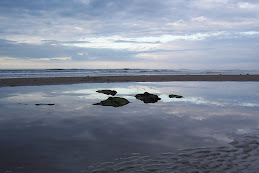In the bleak mid-winterFrosty wind made moan,Earth stood hard as iron,Water like a stone;"A Christmas Carol" by Christina RossettiThis was one of my favourite carols to sing at the service we attended at Durham Cathedral each Christmas Eve when I was a child. I was always disappointed if it came up in the programme as "choir only".
It took me twenty years to discover that the words had been written by one of the few pre-1950s British female poets who ever make it into "best loved" or "classic" anthologies.
It feels, more than ever, that we are in a bleak mid-winter. Debt, economic crisis, massive wealth inequalities, climate change, animal and resource over-exploitation, species loss, human suffering, the list falls like the snow in Rossetti's poem. And the only answers offered are: consumerism, a "me first" attitude to rights and war. It seems the last part of the carol is missed:
"What can I give Him.Poor as I am?....Yet what I can I give Him.Give my heart."As a child I would fill with tears singing those lines. As an adult who does not believe in a "Him", I replace Rossetti's word with "the world" and I still feel like weeping.
A word which is appearing more and more often in our sore times is "efficiency". We will get through this bleak "blip in our prosperity" by being more efficient. What is disregarded is that as humans we are not made to be efficient, and, indeed, the moments when we are least efficient are when we are the most human. The health professional who sits with the elderly woman for five minutes, perhaps holding her frail hand, and listening, to a long drawn out story which is confused and has nothing to do with the "presenting problem", is not being efficient. Yet would we want to be without these moments of connection?
Being efficient also squeezes out creativity. Our creativity relies on having the time to day dream, to play, to explore without direction and to make mistakes. These are not activities which sit easily along-side "efficiency".
I would propose less efficiency. Yes, perhaps we will have to do without as many things, wait longer for responses, put up with more glitches in the system. On the other hand, would we not feel compensated by the nurturing of relationships and the gifts of creativity?

